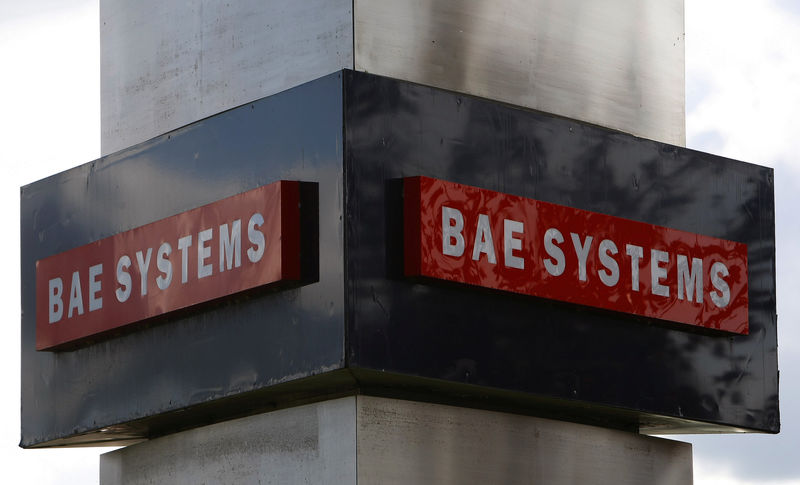Nvidia among investors in xAI’s $20 bln capital raise- Bloomberg
Investing.com -- BAE Systems (LON:BAES) shares traded 2% lower on Wednesday following its full-year results, which showed a strong free cash flow performance but a softer-than-expected outlook for the year ahead.
The aerospace company reported an FCF of £2.51 billion for FY24, ahead of the consensus estimate of £1.62 billion.
However, its guidance for FY25 FCF of more than £1.1 billion fell short of consensus expectations of £1.92 billion, raising investor concerns.
Despite the FCF miss in guidance, BAE’s overall results were largely in line with expectations. The company posted sales of £28.3 billion, slightly ahead of the consensus estimate of £28.1 billion. EBIT came in at £3.02 billion, 1% above consensus estimates of £3.00 billion.
EPS of 68.5p was 3% ahead of the expected 66.8p, and the full-year dividend of 33.0p exceeded the 32.2p forecast.
Analysts at Jefferies said that the FCF beat was driven by increased customer advances late in the year, including contributions from MBDA and CV90 contracts, as well as strong cash management.
The demand environment remains strong, with a book-to-bill ratio of 1.2x, underlining a positive medium-to-long-term growth outlook. FY25 guidance signals continued momentum in executing the group’s strategy.
Morgan Stanley (NYSE:MS) believes that the current valuation remains compelling given BAE’s visibility and diversification, particularly its exposure to priority defence spending areas such as drones, ammunition, and air defence.
Organic sales growth reached 9%, or 14% including Ball (NYSE:BALL) Aerospace on a constant currency basis, at the top end of the 12-14% guidance range.
Adjusted EBIT of £3,015 million grew 14% on a constant currency basis, 1% ahead of consensus, driven by strong performance in Platforms & Services and Air.
Adjusted EPS rose 8.4%, 3% ahead of consensus, despite a higher-than-expected net financial expense, which was offset by a lower tax rate.
FCF was the standout figure at £2.5 billion, well ahead of the £1.5 billion guidance and beating consensus by 55%, largely due to year-end downpayment timing benefits. FY25 guidance for FCF at >£1.1 billion assumes no new advances, which Morgan Stanley interprets as reflecting a cautious stance.
They estimate a net advance inflow of £700 million for the year, with FY25 potentially seeing outflows exceeding £1 billion. However, the two-year average FCF for 2024-25 would still be a solid £1.6 billion, reflecting a 70-80% conversion to adjusted net income.
Ball Aerospace met expectations following an initial impact from the Continuing Resolution in the US earlier in the year.
Second-half sales rose 10% both sequentially and year-over-year, with margins at 11.7%, exceeding management’s forecasts.
The backlog for Ball Aerospace increased 25% year-over-year to $3.7 billion, reflecting strong demand, with integration proceeding as planned.
Overall demand remains robust, with a book-to-bill ratio of 1.2x and a record order backlog of £78 billion, providing 2.7 years of revenue coverage. K
FY25 guidance projects constant currency sales growth of 7-9%, with adjusted EBIT and EPS growth of 8-10%, reinforcing BAE’s steady execution.
While consensus estimates already reflect the upper range of guidance, uncertainties in US (DOGE, budgets) and UK (defence review) markets persist.
Morgan Stanley sees potential upside in divisional performance, particularly in Electronic Systems and Combat & Intelligence, where growth assumptions appear conservative.
With minimal changes to revenue forecasts and no adjustments to FX assumptions (£/$1.25 for FY25, compared to guidance of £/$1.28), Morgan Stanley has made slight modifications to earnings estimates and raised their price target for BAE shares to GBp1,685 from GBp1,611, citing higher peer multiples and continued strong execution.
